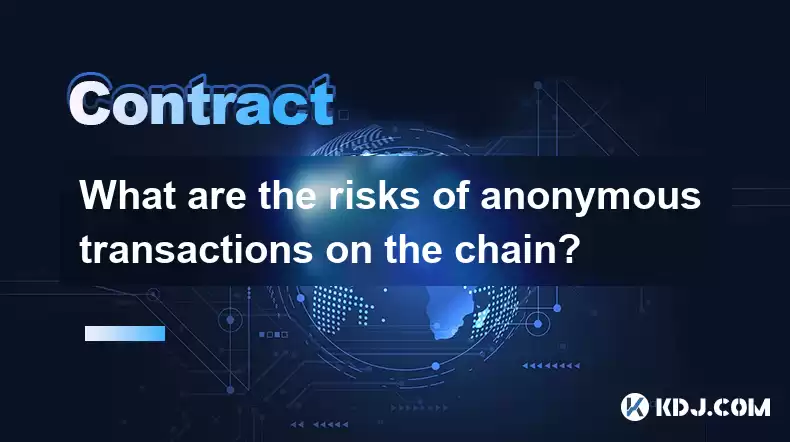-
 Bitcoin
Bitcoin $119600
0.72% -
 Ethereum
Ethereum $4175
-0.54% -
 XRP
XRP $3.207
0.44% -
 Tether USDt
Tether USDt $0.9997
-0.03% -
 BNB
BNB $795.8
-0.80% -
 Solana
Solana $178.4
-0.74% -
 USDC
USDC $0.9998
-0.01% -
 Dogecoin
Dogecoin $0.2273
-2.09% -
 TRON
TRON $0.3405
-0.28% -
 Cardano
Cardano $0.7864
-0.90% -
 Hyperliquid
Hyperliquid $44.43
1.35% -
 Chainlink
Chainlink $21.29
-0.96% -
 Stellar
Stellar $0.4411
0.55% -
 Sui
Sui $3.715
-2.92% -
 Bitcoin Cash
Bitcoin Cash $583.0
2.23% -
 Hedera
Hedera $0.2521
-2.12% -
 Ethena USDe
Ethena USDe $1.000
-0.05% -
 Avalanche
Avalanche $23.18
-1.96% -
 Litecoin
Litecoin $125.0
2.79% -
 Toncoin
Toncoin $3.311
-0.44% -
 UNUS SED LEO
UNUS SED LEO $8.996
-0.53% -
 Shiba Inu
Shiba Inu $0.00001305
-2.49% -
 Uniswap
Uniswap $10.60
-0.11% -
 Polkadot
Polkadot $3.910
-2.51% -
 Dai
Dai $0.9999
-0.03% -
 Cronos
Cronos $0.1640
2.00% -
 Ethena
Ethena $0.7932
4.93% -
 Bitget Token
Bitget Token $4.371
-1.10% -
 Monero
Monero $267.2
-1.09% -
 Pepe
Pepe $0.00001154
-3.46%
What are the risks of anonymous transactions on the chain?
Anonymous blockchain transactions, despite offering privacy benefits, pose significant risks by facilitating illicit activities and hindering regulatory monitoring, highlighting the need for a balance between anonymity and accountability.
Feb 21, 2025 at 11:13 pm

Key Points:
- Privacy and anonymity can be desirable in certain situations, but they also come with inherent risks.
- Anonymous transactions make it difficult to trace the flow of funds, which can facilitate illicit activities such as money laundering and tax evasion.
- Regulatory agencies and law enforcement face challenges in monitoring and preventing illegal activities involving anonymous transactions.
- Despite the risks, anonymous transactions can also be beneficial for protecting privacy and anonymity in situations such as whistleblowing or political activism.
Risks of Anonymous Transactions on the Blockchain
1. Facilitation of Illicit Activities
Anonymous transactions on the blockchain can make it easier to conceal the identities of those involved in illegal activities, such as money laundering, tax evasion, and terrorist financing. Money laundering involves disguising the origins of illegally obtained funds, while tax evasion refers to intentionally avoiding or misreporting income to evade taxes. Terrorist financing involves providing support or resources to terrorist organizations.
2. Difficulty in Tracing Funds
Anonymous transactions make it difficult for authorities and financial institutions to trace the flow of funds, which hinders investigations into financial crimes. This difficulty stems from the decentralized and pseudonymous nature of blockchain transactions, where individuals can interact without revealing their true identities.
3. Challenges for Regulatory Agencies
Regulatory agencies and law enforcement face challenges in monitoring and preventing illegal activities involving anonymous transactions. Traditional financial systems have regulations and reporting requirements in place to facilitate the detection and prevention of financial crimes. However, these mechanisms may not be as effective in the realm of anonymous blockchain transactions.
4. Privacy Concerns for Legitimate Transactions
While anonymous transactions can facilitate illegal activities, they also raise privacy concerns for legitimate transactions. Some individuals may prefer to keep their financial activities private, and anonymous transactions provide a means to do so. However, this privacy can also make it difficult to prove the legitimacy of transactions, especially for high-value transfers.
5. Potential for Fraud and Scams
Anonymous transactions can provide an avenue for fraud and scams, as individuals can create multiple accounts to impersonate others or engage in fraudulent activities without being easily traced. This can be particularly problematic in decentralized finance (DeFi) platforms, where anonymity can increase the risk of exploits and rug pulls.
FAQs
Q: What are the benefits of anonymous transactions?
A: Anonymous transactions can provide privacy and anonymity, which can be beneficial for whistleblowing, political activism, or protecting sensitive information.
Q: How can anonymity be balanced with regulatory needs?
A: Strike a balance between privacy and regulation, governments and industry stakeholders are exploring various approaches, such as zero-knowledge proofs, privacy-enhancing technologies, and collaboration with cryptocurrency exchanges to enhance transparency while preserving user privacy.
Q: What measures can be taken to mitigate the risks of anonymous transactions?
A: Implementing KYC/AML (Know Your Customer/Anti-Money Laundering) protocols, collaborating with law enforcement agencies, and developing tools for tracing and analyzing blockchain transactions can help mitigate the risks.
Q: How can individuals protect themselves from scams and fraud involving anonymous transactions?
A: Conduct thorough research, be cautious of unsolicited offers, and use reputable cryptocurrency exchanges and platforms. Additionally, individuals can use privacy-enhancing tools and anonymizing services to protect their identities while minimizing the risks associated with anonymous transactions.
Disclaimer:info@kdj.com
The information provided is not trading advice. kdj.com does not assume any responsibility for any investments made based on the information provided in this article. Cryptocurrencies are highly volatile and it is highly recommended that you invest with caution after thorough research!
If you believe that the content used on this website infringes your copyright, please contact us immediately (info@kdj.com) and we will delete it promptly.
- DYDX Price Stays Afloat: Navigating Neutral Momentum with Technical Indicators
- 2025-08-11 20:50:12
- Superman Takes Flight: A Deep Dive into the Comic Program and Coin Medals
- 2025-08-11 20:30:12
- JasmyCoin's Bullish Momentum: Riding the Daily Gain Wave
- 2025-08-11 21:10:12
- Shiba Inu's Comeback Trail and the Meme Coin Mania: Can $SHIB Deliver a 12,000x Return?
- 2025-08-11 18:30:11
- Proof of Trust, Transparency, and User Safety: Keeping Crypto Real
- 2025-08-11 18:50:12
- Pudgy Penguins, Bitcoin Penguins, and the $22M Meme Coin Mania: A New York Perspective
- 2025-08-11 17:10:11
Related knowledge

Is it possible to adjust the leverage on an open position on KuCoin?
Aug 09,2025 at 08:21pm
Understanding Leverage in KuCoin Futures TradingLeverage in KuCoin Futures allows traders to amplify their exposure to price movements by borrowing fu...

What cryptocurrencies are supported as collateral on KuCoin Futures?
Aug 11,2025 at 04:21am
Overview of KuCoin Futures and Collateral MechanismKuCoin Futures is a derivatives trading platform that allows users to trade perpetual and delivery ...

What is the difference between realized and unrealized PNL on KuCoin?
Aug 09,2025 at 01:49am
Understanding Realized and Unrealized PNL on KuCoinWhen trading on KuCoin, especially in futures and perpetual contracts, understanding the distinctio...

How does KuCoin Futures compare against Binance Futures in terms of features?
Aug 09,2025 at 03:22am
Trading Interface and User ExperienceThe trading interface is a critical component when comparing KuCoin Futures and Binance Futures, as it directly i...

How do funding fees on KuCoin Futures affect my overall profit?
Aug 09,2025 at 08:22am
Understanding Funding Fees on KuCoin FuturesFunding fees on KuCoin Futures are periodic payments exchanged between long and short position holders to ...

What is the distinction between mark price and last price on KuCoin?
Aug 08,2025 at 01:58pm
Understanding the Basics of Price in Cryptocurrency TradingIn cryptocurrency exchanges like KuCoin, two key price indicators frequently appear on trad...

Is it possible to adjust the leverage on an open position on KuCoin?
Aug 09,2025 at 08:21pm
Understanding Leverage in KuCoin Futures TradingLeverage in KuCoin Futures allows traders to amplify their exposure to price movements by borrowing fu...

What cryptocurrencies are supported as collateral on KuCoin Futures?
Aug 11,2025 at 04:21am
Overview of KuCoin Futures and Collateral MechanismKuCoin Futures is a derivatives trading platform that allows users to trade perpetual and delivery ...

What is the difference between realized and unrealized PNL on KuCoin?
Aug 09,2025 at 01:49am
Understanding Realized and Unrealized PNL on KuCoinWhen trading on KuCoin, especially in futures and perpetual contracts, understanding the distinctio...

How does KuCoin Futures compare against Binance Futures in terms of features?
Aug 09,2025 at 03:22am
Trading Interface and User ExperienceThe trading interface is a critical component when comparing KuCoin Futures and Binance Futures, as it directly i...

How do funding fees on KuCoin Futures affect my overall profit?
Aug 09,2025 at 08:22am
Understanding Funding Fees on KuCoin FuturesFunding fees on KuCoin Futures are periodic payments exchanged between long and short position holders to ...

What is the distinction between mark price and last price on KuCoin?
Aug 08,2025 at 01:58pm
Understanding the Basics of Price in Cryptocurrency TradingIn cryptocurrency exchanges like KuCoin, two key price indicators frequently appear on trad...
See all articles

























































































